Water Heater Replacement Tulsa: Find an Experienced Professional Today
When it comes to investing in a new water heater replacement, prioritizing energy efficiency is a wise decision. Upgrading to modern models with advanced features can result in long-term savings and a more eco-friendly home. To ensure a successful installation or replacement, it's essential to find a reputable and experienced professional who can guide you through the process.

Reasons To replace your water heater
When it comes to your home's water heater, investing in a replacement can offer significant benefits. Here are a few reasons why a new water heater could be the right choice for you:
Improved Efficiency: Newer water heaters are designed to be more energy-efficient, helping you save on your utility bills in the long run. They use advanced technology to heat water more efficiently, reducing energy waste.
Reliable Performance: Over time, older water heaters may become less reliable, leading to frequent breakdowns and repairs. By upgrading to a new water heater, you can enjoy reliable performance and peace of mind, knowing that your hot water needs will be met consistently.
Enhanced Safety: Older water heaters may pose safety risks due to wear and tear. Newer models come with improved safety features, such as temperature and pressure relief valves, to protect against potential hazards.
Extended Lifespan: If your current water heater is nearing the end of its lifespan, investing in a new one can save you from unexpected breakdowns and the inconvenience of being without hot water. New water heaters are built to last, providing you with years of reliable service.
When considering a new water heater, it's important to consult with a professional to determine the right size, type, and fuel source for your home's needs. They can guide you through the selection process and ensure a proper installation.

Benefits of a new water heater
A new water heater offers a range of benefits.
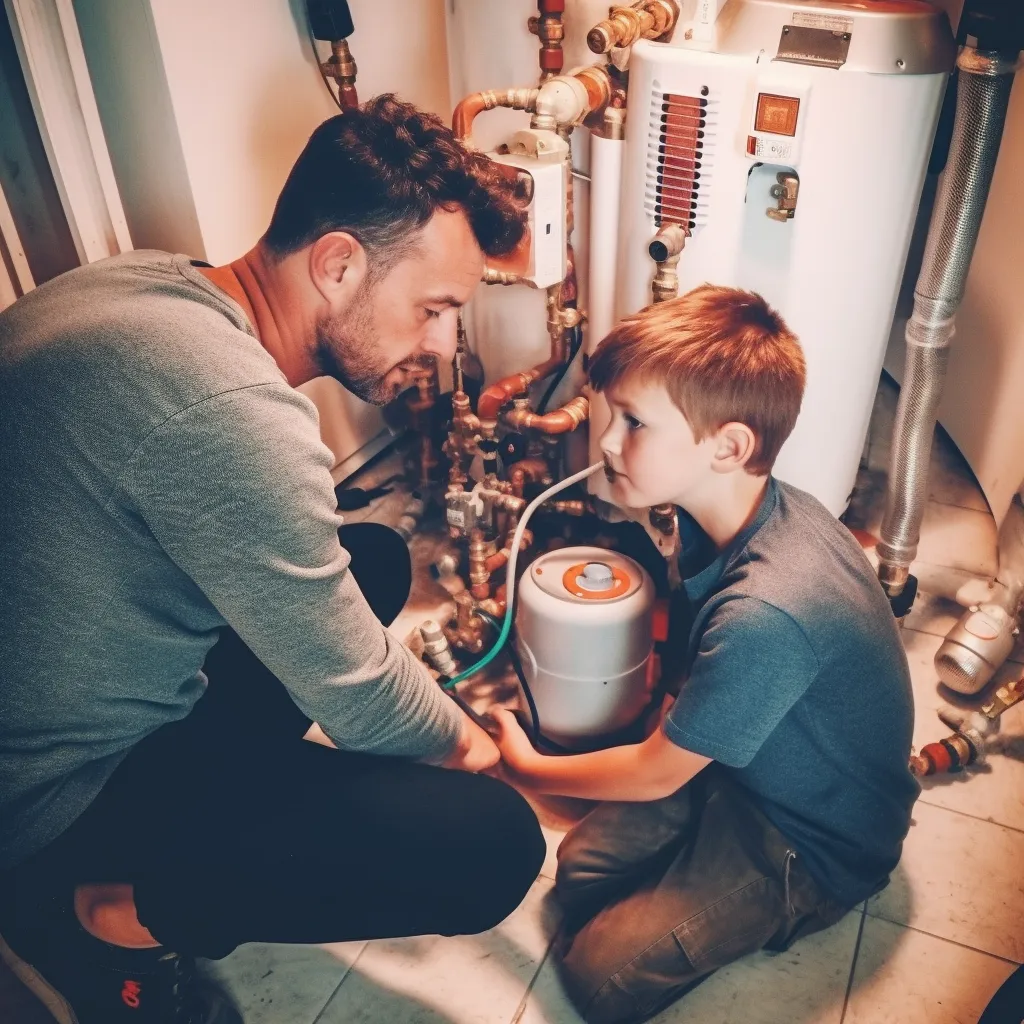
Consistent Supply of Hot Water: A new water heater ensures a steady and reliable flow of hot water throughout your home, meeting the demands of multiple appliances and occupants.
Improved Energy Efficiency: Newer water heaters are designed to be more energy-efficient, reducing your energy consumption and lowering utility bills.
Extended Warranty Period: Upgrading your water heater often comes with the advantage of an extended warranty, providing you with added peace of mind and protection for your investment.
Fewer Maintenance Worries: With newer models, you can enjoy the benefits of improved components and advanced technology, reducing the likelihood of maintenance issues and the need for frequent repairs.
Enhanced Features: Upgraded water heaters often come with additional features that enhance both comfort and energy efficiency. These may include digital temperature controls, programmable settings, and even smart home integration, allowing you to optimize your hot water usage.
By upgrading your water heater, you can experience the convenience of a consistent supply of hot water, improved energy efficiency, and enhanced safety features. Additionally, the extended warranty period and reduced maintenance concerns provide added value and peace of mind. Consider consulting with a professional to determine the best water heater option for your specific needs and enjoy the benefits of a new and efficient hot water system in your home.
Types of water heaters
When selecting a water heater for your home, it's important to consider the different types available. Here are some options to explore:

Storage tank water heater
This traditional type of water heater stores and continuously heats a large volume of water in a tank. It provides a steady supply of hot water but can result in energy waste if not properly insulated.

Tankless water heater
Also known as on-demand water heaters, these units heat water directly as it flows through the device. They don't require a storage tank, providing hot water on demand and eliminating the standby energy losses of traditional tanks.

Solar water heater
Solar water heaters utilize the sun's energy to heat water through solar panels or collectors. They are eco-friendly and can provide significant energy savings, but their efficiency depends on sunlight availability.

Heat pump water heater
This type of water heater uses electricity to transfer heat from the air or ground to heat the water. It's more energy-efficient than standard electric models but requires adequate ventilation.

Condensing water heater
These high-efficiency units capture and utilize the exhaust gases produced during combustion to further heat the water, resulting in increased energy savings.

Hybrid water heater
Hybrid models combine elements of tankless and heat pump water heaters. They use heat pump technology to extract heat from the air and supplement it with electrical elements when needed.
Consider factors such as energy efficiency, cost, available space, and your hot water usage patterns when choosing the right water heater for your home. Consulting with a professional can help you make an informed decision based on your specific needs and budget.
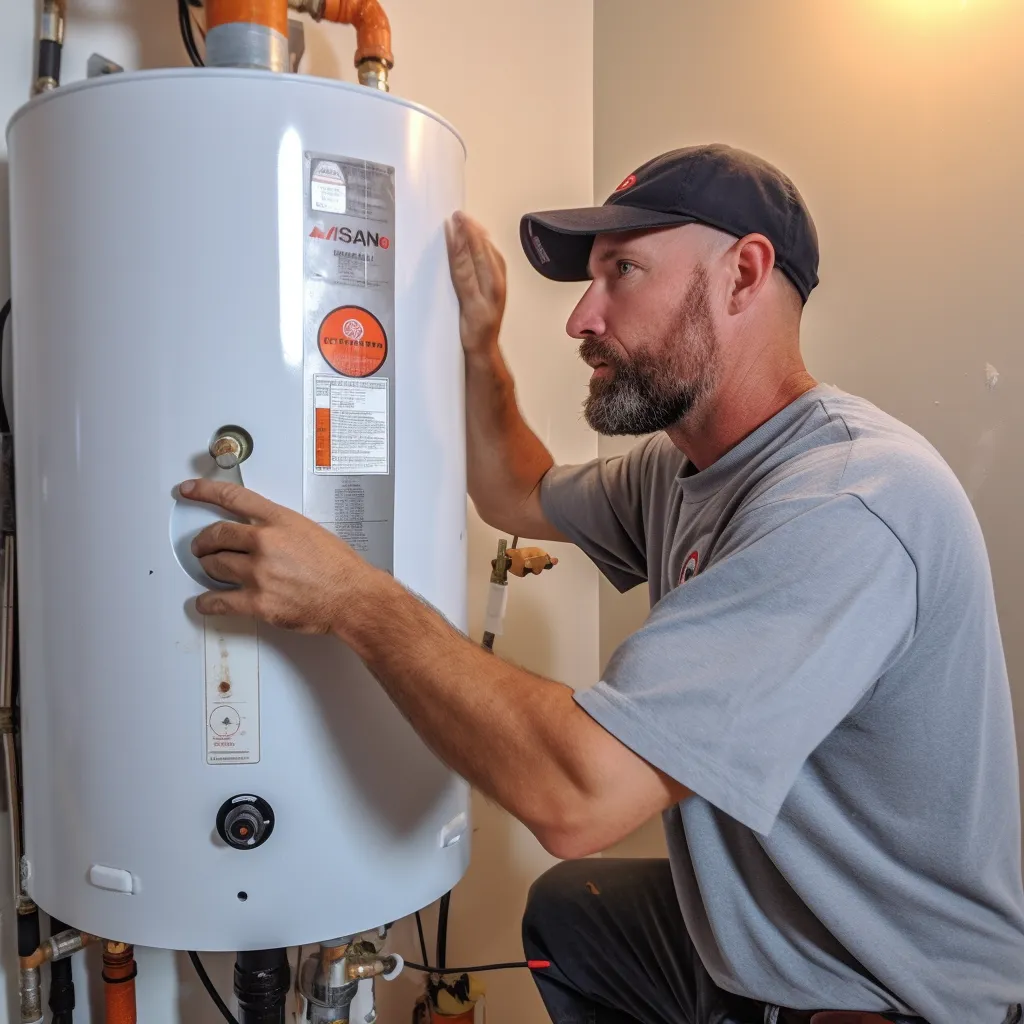
Choosing right type of water heater
When choosing a water heater for your home, it's important to consider factors such as household size, hot water usage, energy efficiency, maintenance, and installation costs.
By considering these factors, you can select a water heater that meets your hot water needs, energy efficiency goals, and budget requirements. Consulting with a professional can provide further guidance and ensure you choose the right water heater for your home.
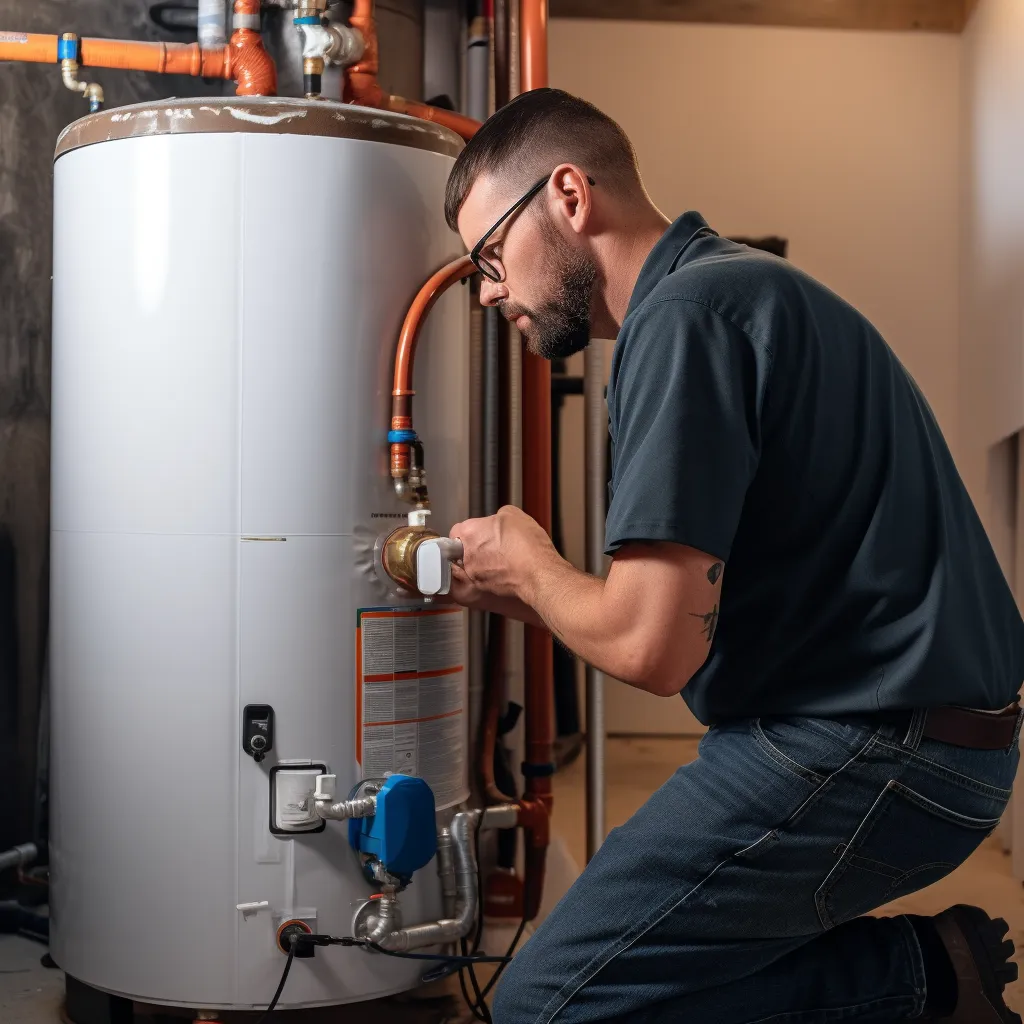
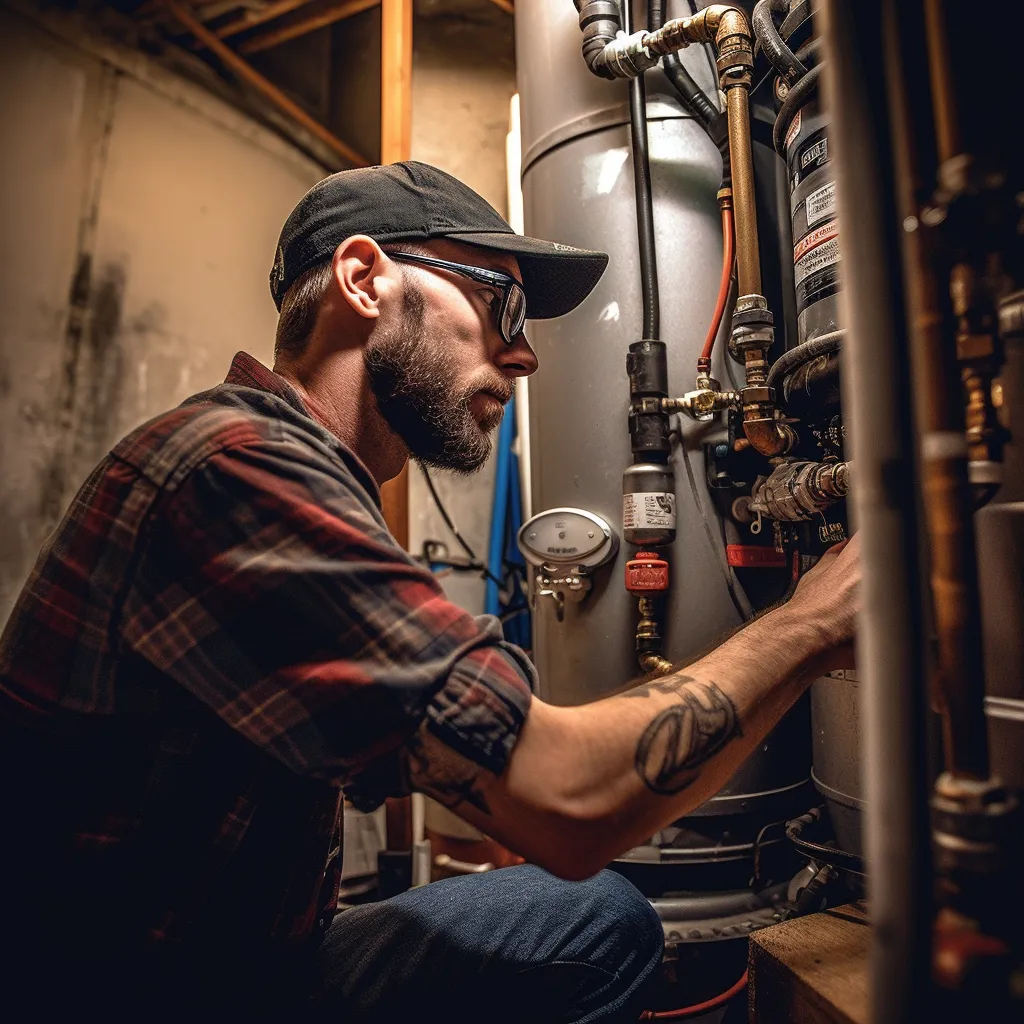
When is it Time to Repair or Replace A water heater?
Consider the cost of repairs versus the cost of a new water heater. If the repairs are extensive and expensive, it may be more cost-effective to replace the unit.
The age of your water heater is an important factor to consider. On average, the lifespan of a water heater is around 8 to 12 years.
Evaluate the efficiency and performance of your water heater. If you notice a decline in performance, such as inconsistent water temperatures or a reduced supply of hot water, it may indicate a need for replacement.
Examine your water heater for signs of rust or corrosion. Rusty or corroded tanks can lead to leaks and further damage.
Use these tips to make an informed decision about your water heater. Consulting a professional plumber can provide further guidance based on your specific situation.

Why Hire a professional Plumber to replace Your Water Heater
Licensed plumbers have the necessary expertise and knowledge to handle water heater replacements efficiently and effectively.
Water heater installations must adhere to specific building codes and regulations. Licensed plumbers stay up-to-date with these requirements, ensuring that your replacement is compliant and meets all safety standards.
Licensed plumbers have access to specialized tools and equipment specifically designed for water heater installations. This allows them to work with precision and ensures the job is done correctly.
Water heaters involve electrical and gas connections, which can be hazardous if not handled correctly.
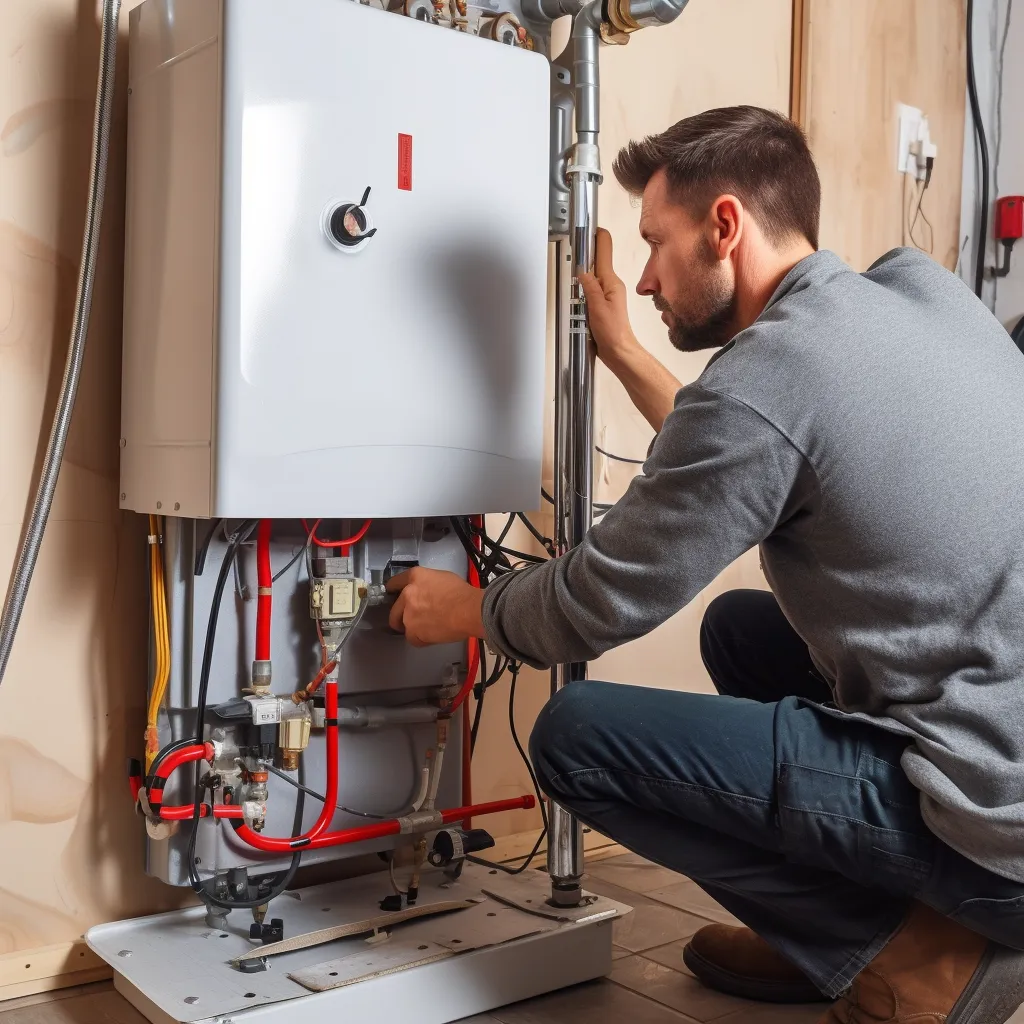
Contact Us
GET IN FULL TOUCH
PHONE:+(918) 393-5714
EMAIL:
josh@waterheatersintulsa.com
Tulsa, Ok 74129
